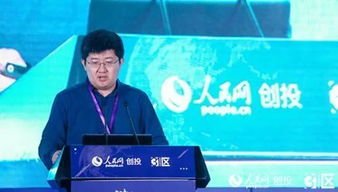Exploring the Intersection of Blockchain and Artificial Intelligence: AISC
Introduction to AISC (Artificial Intelligence on the Blockchain)
In recent years, the convergence of blockchain technology and artificial intelligence has led to the emergence of innovative solutions aimed at enhancing various industries. One such innovation is AISC, which stands for Artificial Intelligence on the Blockchain. AISC represents a fusion of two cuttingedge technologies, offering unique opportunities for efficiency, transparency, and security in AIrelated applications.
Understanding the Dynamics of AISC
AISC leverages the decentralized and immutable nature of blockchain technology to enhance the capabilities of artificial intelligence systems. By integrating AI algorithms with blockchain networks, AISC facilitates the development of trustless and autonomous AI models. This integration addresses several key challenges in traditional AI systems, including data privacy, model transparency, and accountability.
Key Components of AISC
1.
Smart Contracts
: Smart contracts serve as the foundation of AISC platforms, enabling the execution of predefined rules and agreements without the need for intermediaries. In the context of AI, smart contracts govern various aspects such as data sharing, model training, and incentive mechanisms.
2.
Decentralized Data Marketplaces
: AISC platforms often feature decentralized data marketplaces where users can securely buy, sell, and share data for AI training purposes. These marketplaces utilize blockchain technology to ensure data integrity, privacy, and provenance.
3.
Immutable Data Storage
: Blockchain's immutable ledger provides a tamperproof record of data transactions and model outputs, enhancing the transparency and auditability of AI processes. This feature is particularly valuable in applications where data integrity and accountability are paramount, such as healthcare and finance.
4.
Tokenization and Incentive Mechanisms
: AISC platforms incorporate token economics to incentivize participation and contribution to the ecosystem. Participants are rewarded with tokens for sharing data, training AI models, or validating transactions, thereby creating a selfsustaining economy driven by collaborative efforts.
Applications of AISC
1.
AIaaS (AI as a Service)
: AISC platforms enable the provision of AI services through decentralized networks, allowing users to access and deploy AI models ondemand without relying on centralized providers. This democratizes access to AI capabilities while ensuring data privacy and security.
2.
Data Monetization
: AISC facilitates the monetization of data assets by enabling individuals and organizations to securely trade data on decentralized marketplaces. Users retain ownership and control over their data while earning rewards for sharing valuable insights with AI developers.
3.
Supply Chain Optimization
: AISC can enhance supply chain management by leveraging AI algorithms to analyze and optimize complex logistics processes. By integrating blockchain for transparent tracking and data integrity, AISC platforms enable stakeholders to trace the provenance of goods, detect anomalies, and streamline operations.
4.
Healthcare Solutions
: In healthcare, AISC can revolutionize patient data management, medical research, and diagnostic processes. By securely sharing and analyzing healthcare data on blockchainenabled platforms, researchers and healthcare providers can develop personalized treatment strategies, accelerate drug discovery, and improve patient outcomes.
Challenges and Considerations
Despite its promising potential, AISC also faces several challenges and considerations:
1.
Scalability
: Scaling AISC platforms to support largescale AI applications remains a technical challenge due to the computational and storage requirements of AI algorithms and blockchain consensus mechanisms.
2.
Interoperability
: Ensuring interoperability between different blockchain networks and AI frameworks is crucial for the seamless exchange of data and services in the AISC ecosystem.
3.
Regulatory Compliance
: Compliance with existing regulations, particularly concerning data protection and intellectual property rights, poses legal challenges for AISC platforms operating in various jurisdictions.
4.
Security and Privacy
: Protecting sensitive data and AI models from unauthorized access and malicious attacks is essential for maintaining trust and integrity within the AISC ecosystem.

Conclusion
AISC represents a promising convergence of blockchain and artificial intelligence, offering transformative solutions across various industries. By harnessing the decentralized and transparent nature of blockchain technology, AISC platforms empower users to leverage AI capabilities while preserving data privacy, security, and accountability. Despite facing challenges, the continued advancement of AISC holds the potential to reshape the future of AIdriven innovation.
文章已关闭评论!
